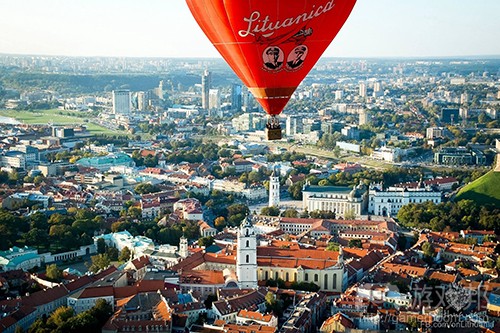如何让当地政府热爱游戏开发这一产业
作者:Oleg Pridiuk
有些国家拥有非常强大的游戏开发文化,也有些国家的游戏开发止步于10年前。
我的故事是从2014年年初开始。那时候的立陶宛属于后面的这类型国家。这里有前主机开发公司Nordcurrent,前KOEI艺术部,追溯到2006年的主要RTS游戏以及各种“之前的伟大计划”。我曾经在世界上第二大研发工作室,也就是位于立陶宛首都维尔纽斯的Unity Technologies工作过。我也曾作为产品专员走遍了世界各地,并将立陶宛当成是一个宠物项目。
在2014年1月一个寒冷的早上10点,三个穿着正装的年轻男人出现在Unity Technologies的办公室并告诉我们,立陶宛政府决定将游戏开发作为国家的重要产业。他们是来这里寻求帮助的,并且之前他们也获得了来自其它地方的帮助。
我非常深入地考虑了这件事,并询问了一些认识的人的意见,想知道是否有人会想在立陶宛进行投资。我也快速想到我们可以将维尔纽斯与Unity授权捆绑在一起,就像:“你是否想要购买一个Unity授权?不想?没关系,但我们可以帮助你节省研发成本。”反之亦然:“你可以在维尔纽斯节省研发成本,同时还能经常见到Unity开发者—-在这里我们拥有一个开发办公室。”将软件与研发鼓励元素捆绑在一起作为一项业务能够迎合所有当事人。
政府拥有各种不同的武器,并伴随着自己的KPI,利益和目标。他们并不会彼此交流,我们却不一样。如果我们交流得越多,我们便能开启更多扇门。在某些意义上,Unity会成为商业运作的中间件公司,就像它是作为技术的中间件那样。
我们做过的最正确的事便是将当地的律师加入进来。因为像激励,折扣,特别追踪等等会出现在文书上的内容通常都伴随着附属细则。显然在政府管理层中,几乎没有人真正了解这些内容。也许是因为他们不需要这么做?对话真的很有效,当政府人员与一些潜在投资者,律师以及中间件层聚集在一起并了解双方的KPI时,他们将清楚产业的需求并得到激励。通常情况下中间件层就是我。
教育是我的下一个议程。虽然Unity不能在教育领域创造百万收益,但是我们却需要添加足够的人才到我们的Unity捆绑项目中。我们可以将一些通用的媒体课程直接重命名并用于游戏开发中。当地的一些大学也准备好要跳上游戏开发的列车。
我们已经拥有一个游戏开发硕士课程。在Invest Lithuania上,人们可以使用教育部听得懂的语言。我们也可以说Invest Lithuania能够理解的语言,并且我们也将带进业务动机去帮助这些课程的进行。
然后我们迎来了这个国家的教育挑战,即我们当下这里还没有游戏成功案例去激励人们热爱这个创造性产业。我们通过致力于政府PR,当地产业影响者以及新来的投资者所组成的群组而更好地解决问题。我们的群组都非常积极地参加了当地的活动,所以结合PR和媒体活动的游戏开发主题变成了一大趋势。每个人都想加入这一趋势中并搞清楚如何有效地利用它。
最终我们的群组变得非常有效率,并且非常接近国家和产业的特定流程。这是一个小型,透明的群组,我们彼此信任且彼此依赖。这里的每个人都专注于他们最熟悉的部分,并为了创造更好的结果而相互分享相互帮助。
我们总是能在网络上了解到有关某个人的工作是做什么。但事实上,每个群组的代表也许都能理解问题的所在并能够想出特定的解决方法,但是来自不同产业的人却很难真正理解彼此,感受到动机并将问题转换成行动。然而,一旦人们开始进行交谈,并友好地对待彼此,奇迹便会出现。
当这个故事开始时,我是Unity Technologies的一名产品专员。不是大老板也不是管理者。去年秋天我离开了Unity并且我不能将这个项目带到我的新东家Game Insight。但我仍然从另一端在努力推动着这个故事的发展,而关于这方面我将在另一篇文章中呈现出来。
(本文为游戏邦/gamerboom.com编译,拒绝任何不保留版权的转发,如需转载请联系:游戏邦)
How I made my government love game development
by Oleg Pridiuk
There are countries with strong game development culture, and there are countries where the last tracks of game development success point to demo scene 10 years back.
My story started in early year 2014, when Lithuania did belong to the latter classification. It had former console devs Nordcurrent, former KOEI art department, major RTS game dated to 2006 and a few more “former great initiatives” scattered around. I worked at the world’s second largest R&D office of Unity Technologies in Vilnius, Lithuania. I travelled the world as an evangelist and considered Lithuania as a pet project.
So. One frosty morning, January 2014, at 10 AM. Three officially dressed smiling young men appeared at Unity Technologies office to explain, that Lithuanian government decided game development was important for the country. They asked for help, and they got their help — a few leads in exchange for a promise to serve the leads well…
The government guys were nice, they indeed served very well to those few leads. I thought deeper and asked around, if anyone wanted to invest in Lithuania. And I quickly understood, we could bundle Vilnius along the Unity license: “would you buy a Unity license? No? OK, but we have a nice offer to save on R&D costs”. And vice versa: “you can save on R&D in Vilnius and also meet Unity developers often — we have a development office there”. Bundling software with R&D incentives appeared to be a business, where all parties were happy with results.
There were different arms of the government, with own KPI, interests and goals. And they didn’t talk to each other. Yet we did. The more we talked, the more doors we were able to open. In certain sense, Unity became a middleware company for business operations just as it was a middleware for technology. I don’t remember if our group actually approved anything with Unity bosses, though…
The greatest thing we did was that we included local lawyers everywhere. Incentives, discounts, special tracks and everything else on the paper often had a small print. Sometimes it was all small print. And obviously within the end government managers no one actually knew and felt the practical point. Maybe they did not have to? The dialog worked really well, when government people were put together with potential investors, lawyers and a very thin layer of “middleware”, that understood KPIs of each side, felt the industry needs and was motivated for everything to just happen. Normally that middleware layer was me. Hello!
Education was next on my agenda. Unity would not make a million on education, but we needed to add an attractive number of available talent to our Unity bundle. That was possible, had some generic media courses been immediately renamed and reskinned to game development flavor. Local universities were ready to jump on the game development train and just did that.
And as a nice sweet candy we’d have a Master of Game Development course developed. People at Invest Lithuania could speak the language the Ministry of Education understood. We could speak the language Invest Lithuania understood, and we brought in the business motivated to help with the curriculum.
Then the challenge was to educate the country, that had no current game success story, to love and appreciate this creative industry. We solved the puzzle by working in a joined group of government PR, local industry influencers and freshly relocated investors. The group helped media understand PR points properly and generate the buzz we needed. Our group was quite active on the local events field, so combined with PR and media activity the game development topic became a trend. Everyone wanted to jump on this trend and understand how they could make use of it.
Eventually our group became efficient and close to certain processes in the country and the industry. The group was small, transparent, there was trust and dependency on each other. Everyone could focus on the part they knew best, and deliver to the common matter for good.
Normally texts on the internet educate how someone’s job has to be done— government has to pay more attention here, business has to be more responsible there, peasants have to get higher pay per hour… The reality is, representatives of each group may understand the issues and may even come up with certain solutions, as they see them. However, it is infinitely hard for people from different industries understand each other, feel one’s motivations and convert issues to action points. Yet magnificent things happen, once people start talking to each other, try being friendly and forgiving.
I was as a product evangelist at Unity Technologies, when the story started. Not a big boss. Not even a manager. I left Unity last autumn and could not carry my pet project (as it was) to my new employer Game Insight. But I stayed around and contributed to the story from another end, something for another blog post =](source:Gamasutra)








































 闽公网安备35020302001549号
闽公网安备35020302001549号